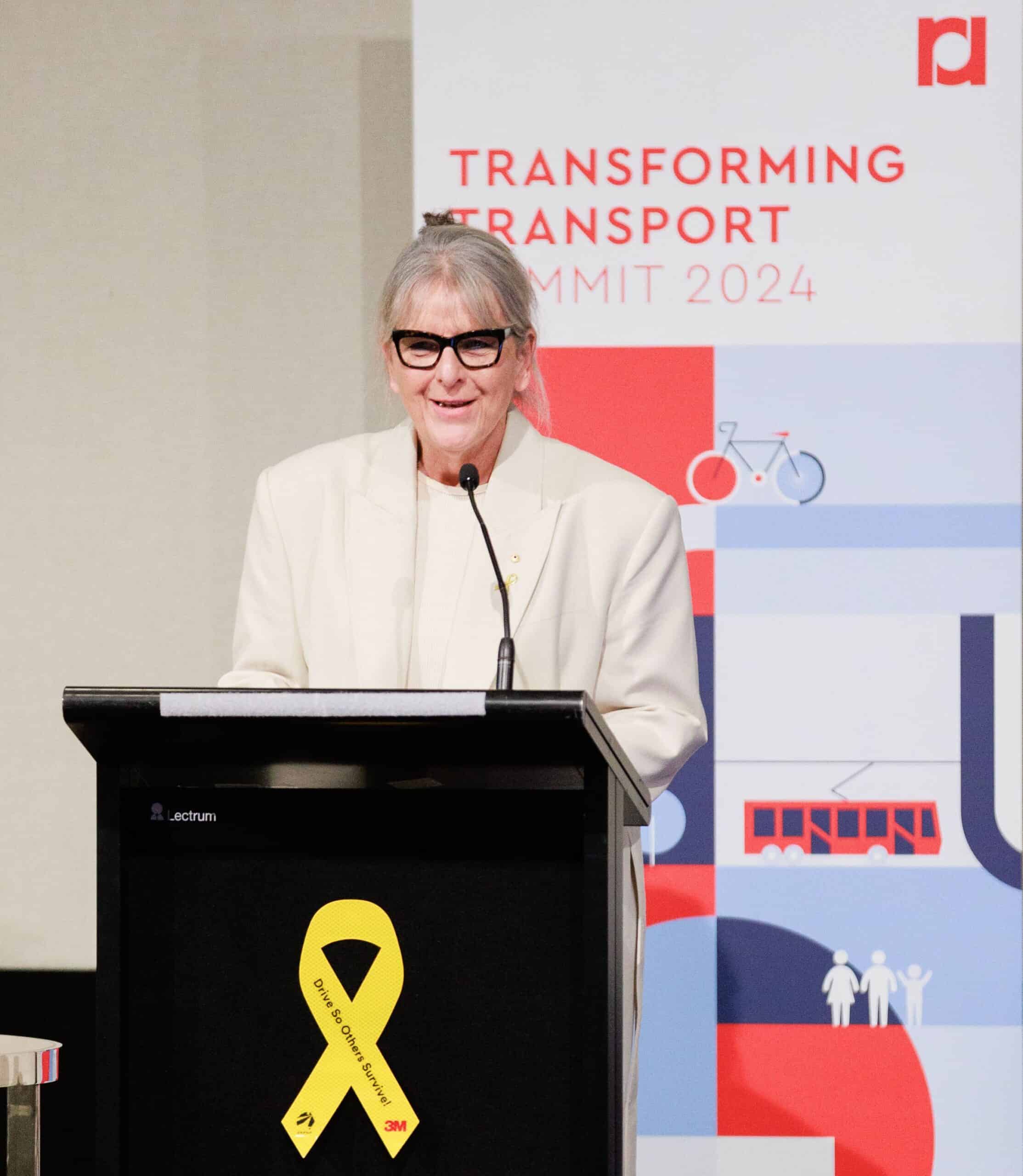
By Gabrielle Trainor AO, Chair, Construction Industry Culture Taskforce
The well-earned plaudits for the new Sydney Metro show the construction industry at its best in delivering transformational quality of life to our communities. Similar marquee projects dot our cities and infrastructure improvements are constant features of our towns and regions.
This industry, a cornerstone of the Australian economy, gives our people great opportunity and the promise of being part of significant and enduring achievement. Think of the pride of the thousands of workers who contribute their expertise and labour to nation-shaping infrastructure projects and providing homes, workplaces, and built facilities for people everywhere. Pay is good, the satisfaction of teamwork and imagination are at its heart and yet, construction is not an industry of choice.
Our construction is under relentless pressure as the national imperative for housing tops the agenda, while at the same time, demand for construction of transport infrastructure projects and multiple new ones in energy transition and defence rises. It’s common knowledge that there are just not enough people, by a factor of some hundreds of thousands, to deliver the built form Australia needs.
The causes and solutions for the dearth of skilled construction workers are multi-layered, long term and complex. The Construction Industry Culture Taskforce (CICT) sheds light on one of the most critical issues: the urgent need for cultural transformation within the sector. To help address attraction and retention of people in the industry, it’s clear that more and accountable action is needed to address the challenges of work-life balance, diversity, productivity, wellbeing, and sustainability.
A recent study, led by RMIT University, involving 136 NSW trainees highlights the growing problem of attraction and retention. It revealed a stark disconnect between the aspirations of young workers and the realities of the industry. The findings are a wake-up call: 79% of participants want a job that allows for a healthy work-life balance, yet only a fraction believe such a balance is attainable in construction. At the same time, a study by the NSW Building Commission found 63% of workers presently in the industry are thinking of quitting it.
The introduction of the Culture Standard in the procurement of government projects, aimed at embedding sustainable practices and improving work-life balance, represents a step towards addressing these challenges. Pilot projects under this first draft of the Culture Standard have already shown promising results, demonstrating that a shift towards a more balanced and inclusive industry is not only necessary, but achievable and productive.
Preliminary results from these pilot projects are showing strong support for a five-day work week, with 84% of salaried respondents and 61% of waged respondents favouring this schedule. Moreover, these changes have not adversely affected site productivity, challenging the industry’s long-held belief that longer hours equate to more output.
Instead, they have highlighted the benefits of a rested and diverse workforce, including improved safety, industry attractiveness and job satisfaction. This approach aligns with the broader goals of the CICT to foster a culture that values wellbeing, diversity, and sustainability alongside productivity and efficiency.
However, the journey towards cultural transformation is not without its challenges. It requires a collective effort from all stakeholders, including government, industry leaders, and workers themselves. The CICT is a collaboration between the Australian Constructors Association, Victorian and NSW Governments, alongside academic partners, and industry representatives. It exemplifies the kind of multi-faceted approach needed to drive meaningful change. For these efforts to be successful, it needs a widespread adoption of the Culture Standard, ensuring that the principles of diversity, wellbeing, and time for life become part of the fabric of the industry.
It is important that the Culture Standard is embedded into procurement and harmonised across all Australian jurisdictions as this is the key lever for change for the industry. Chair of the CICT and co-chair of BuildSkills Australia, Gabrielle Trainor AO, said cultural change was at heart transforming the construction industry.
“The Culture Standard, designed to be part of the procurement process, means a level playing field for contractors and government clients buy in, project by project, to creating better, safer, and more equitable work environments and support construction to become an industry of choice,” Ms Trainor said.
“Regulatory changes like the need to address psychosocial risk, and more jurisdictions and delivery agencies joining the Taskforce – together with the Commonwealth providing real incentive to address cultural change in transport projects it funds, momentum is strong – it looks irresistible.”
As we lookahead, it is clear that the construction industry must evolve to meet the changing needs and expectations of its workforce – present and potential. This is not only about creating an industry that people choose to be part of—an industry that offers not just jobs, but careers that are rewarding, sustainable, and inclusive. It is also about addressing critical skills shortages and the costs and productivity of the industry. The work of the CICT and its partners provides a blueprint as a fundamental part of this transformation.
The Australian construction industry is at a pivotal moment. The work of the CICT, with support from industry leaders, clients and contractors and the supply chain, offers the potential for meaningful change. It will lead to an industry that not only contributes to the nation’s economy but also to the wellbeing of its people. As we move forward, let build not just buildings, but a better industry for all.